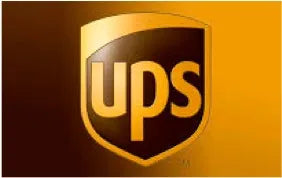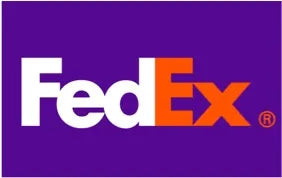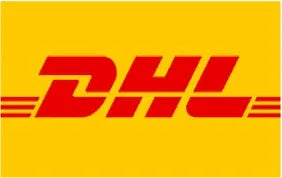Private labeling has become increasingly popular among small businesses looking to sell their own products without the hassle of developing, manufacturing and distributing them. By partnering with a private label manufacturer, businesses can create their own brand with ease and have access to a wide range of products, while reducing the risk and cost of creating their own.
Table of Contents
· Why Choose Private Label?
· What kind of Private Label Products are Suitable to Start
· Domestic VS Chinese Private Label Manufacturers
· How to Find Private Label factories in China
· Services & Solutions of Private Label Companies
· What if Manufacturers Don't Have Private Label Service?
I、Why Choose Private Label?
Private labeling refers to the practice of creating and selling products under your own brand name, rather than the manufacturer's brand name. This allows small businesses to create their own brand and sell their own products without the hassle of developing, manufacturing, and distributing them. There are many reasons why small businesses choose private labeling over creating their own products from scratch.
Cost Effective: Private labeling is a cost-effective way of getting products to market quickly and easily. The manufacturer handles the production, packaging and shipping, so businesses can focus on marketing and selling their products.
Branding: By creating their own brand, small businesses can establish their own identity, differentiate themselves from the competition and build brand loyalty.
Wide Range of Products: Private label manufacturers offer a wide range of products, so businesses can choose the products that best meet their customers' needs. This gives small businesses the opportunity to offer their customers a unique product that sets them apart from the competition.
Quality Control: Private label manufacturers are experienced and equipped to handle product quality control, so businesses can be confident in the quality of their products.
Flexibility: Private labeling allows small businesses to have control over the final product, including packaging and labeling. This gives them the ability to tailor their products to meet their customers' needs and preferences.
Increased Profit Margins: Private labeling allows small businesses to set their own pricing and profit margins, increasing their overall profits.
II、What kind of Private Label Products are Suitable to Start
When starting a private label business, it's important to choose the right products to sell. Choosing the right product will ensure that your business is profitable, and that your customers are satisfied with your offerings. Here are some factors to consider when choosing private-label products:
High-Profit Products: Products with high-profit margins are ideal for private labeling. This allows you to increase your profits and grow your business. High-profit products include cosmetics, supplements, and household items. For example, skin care products and supplements have a high-profit margin and a large customer base, making them an excellent choice for private labeling.
Products that are Easy and Cheap to Customize: Products that are easy and cheap to customize are ideal for private labeling. These products include items such as packaging, labels, and promotional items. For example, water bottles and coffee mugs are popular items for private labeling because they are easily customized with your brand's logo and design.
Simple Products with Fewer Quality Issues: Simple products with fewer quality issues are easier to manage and maintain, making them ideal for private labeling. These products include items such as socks, t-shirts, and hats. For example, basic t-shirts are a popular choice for private labeling because they are simple, durable, and easy to customize.
Popular Products with High Demand: Popular products with high demand are ideal for private labeling. These products include items such as pet supplies, baby items, and kitchen gadgets. For example, pet toys and baby items are popular choices for private labeling because they have a large customer base and are in high demand.
III、Domestic VS Chinese Private Label Manufacturers
When choosing a private label manufacturer, it is important to consider the location of the manufacturer. There are two main options: domestic and Chinese. Each has its own advantages and disadvantages.
Domestic Private Label Manufacturers:
Advantages:
Quality Control: Domestic manufacturers are easier to visit and inspect, making quality control easier to manage.
Communication: Communication is simpler with domestic manufacturers, as language and cultural barriers are eliminated.
Delivery Time: Domestic manufacturers generally have shorter lead times for production and delivery, reducing the risk of product shortages or delays.
Regulations: Domestic manufacturers are more likely to be familiar with local regulations and standards, reducing the risk of product compliance issues.
Disadvantages:
Cost: Domestic manufacturers are often more expensive than Chinese manufacturers due to higher labor costs, raw materials, and overhead costs.
Limited Product Options: Domestic manufacturers may not offer the same range of products as Chinese manufacturers.
Competition: There may be a lot of competition among domestic manufacturers, making it more difficult to find a factory who meets your needs.
Chinese Private Label Manufacturers:
Advantages:
Cost: Chinese manufacturers are often less expensive than domestic manufacturers due to lower labor costs, raw materials, and overhead costs.
Wide Range of Products: Chinese manufacturers offer a wide range of products, including many that are not available from domestic manufacturers.
Large Capacity: Chinese manufacturers often have larger production capacities, making it easier to scale up production as needed.
Disadvantages:
Quality Control: Chinese manufacturers are further away, making quality control and inspections more difficult.
Communication: Communication can be more challenging with Chinese manufacturers, as language and cultural barriers may exist.
Delivery Time: Lead times for production and delivery can be longer with Chinese manufacturers, increasing the risk of product shortages or delays.
Regulations: Chinese manufacturers may not be familiar with local regulations and standards, increasing the risk of product compliance issues.
In short, choosing between domestic and Chinese private label manufacturers depends on your specific needs and priorities. Domestic manufacturers may be more expensive, but they offer easier communication and quality control. Chinese manufacturers offer a wider range of products at a lower cost, but they may have longer lead times and more communication barriers. It is important to thoroughly research both options and choose the manufacturer that best meets your needs.
IV、How to Find Private Label factories in China
China is a leading producer of many products and is home to many private-label factories. Finding the right factory in China can be a challenge, but with the right approach, small businesses can find quality private-label factories who meet their needs. Here are several ways to find private-label factories in China.
Online Directories and Marketplaces: Online directories and marketplaces like Alibaba, Made-in-China, Marcothepolo, and Global Sources are great places to start your search for private-label factories in China. These websites provide a comprehensive list of factories, including their contact information and product offerings.
Trade Shows and Exhibitions: Trade shows and exhibitions are great places to find private label factories in China. You can meet factories face-to-face and see their products up close, giving you a better understanding of the quality of their products and services.
Sourcing Agents: Sourcing agents can help you find private label factories in China that meet your specific needs and requirements. They have in-depth knowledge of the Chinese market and can help you negotiate with factories, ensuring you get the best possible deal.
Word of Mouth: Word of mouth is another effective way to find private-label factories in China. Reach out to other small businesses and ask for recommendations on private-label factories in China. This can give you valuable insights into the quality of the factories and their products.
Industry Specific Networks: Industry-specific networks, such as trade associations or professional organizations, can be a valuable resource in finding private label factories in China. These networks provide a wealth of information and can help you connect with other businesses who have had experience working with private label factories in China.
When looking for private label factories in China, it's important to consider the quality of the products, the reliability of the factory, and their production capabilities. Researching factories thoroughly and visiting them in person can help ensure you find a factory that meets your needs and provides quality products.
V、Services & Solutions of Private Label Companies
Private label companies offer a range of services and solutions to help small businesses create and sell their own branded products. Some of the most common solutions offered by private label companies include logos and packaging design.
Logo Design: Private label companies can help businesses create a professional and distinctive logo that represents their brand. This can include the design of the logo itself, as well as the creation of a brand identity and guidelines for its usage.
Packaging Design: Packaging design is a crucial aspect of a product's success. Private label companies can help businesses create unique and eye-catching packaging for their products, as well as design packaging that is functional and effective for their needs.
Product Development: Private label companies can provide expertise and guidance on product development, from concept to production. This includes research and development, prototyping, and testing, to ensure the product meets customer needs and expectations.
Manufacturing: Private label companies have the expertise, equipment, and experience to manufacture products to high standards. This ensures that businesses can sell high-quality products that meet customer needs and expectations.
Quality Control: Private label companies can also help with quality control, ensuring that products are manufactured to the highest standards. This helps to reduce the risk of product defects and customer complaints, and helps to ensure customer satisfaction.
Supply Chain Management: Private label companies can manage the entire supply chain, from sourcing raw materials to delivery of finished products to customers. This helps to streamline the process and reduce costs for small businesses.
In conclusion, private label companies offer a range of services and solutions to help small businesses create and sell their own branded products. From logo and packaging design to product development, manufacturing, and supply chain management, private label companies can provide expertise and support to ensure success. When choosing a private label company, it's important to consider their experience, reputation, and capabilities, and to understand their process and services.
Further reading about private label products:
· 10 Methods to Private Label Your Products













0 comments